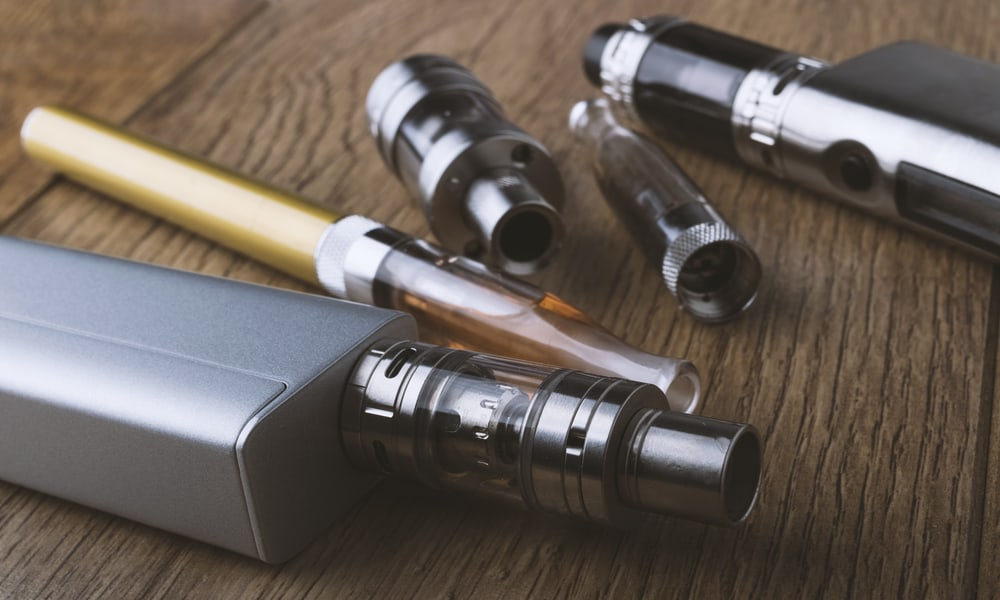You are here
Home 🌿 Cannabis Technology News 🌿 Alberta delays sales of cannabis vapes, angering producers and retailers 🌿Alberta delays sales of cannabis vapes, angering producers and retailers

The province has indefinitely postponed the legal sales of cannabis vapes, a move that’s ignited anger among producers and retailers.
With the second phase of cannabis legalization involving the sale of edibles and other derivatives to take effect in Alberta, a major component of that, vaping cartridges, has been put on hold by the provincial government, which has cited health concerns.
Just as Health Canada announced it was launching a testing regime of vaping products that are already legally available in some provinces, the Alberta government said it, too, would review their safety.
“AGLC and government are considering various aspects related to cannabis vape products to determine whether or not they will be available for consumer purchase in Alberta,” says a statement from Alberta Gaming, Liquor and Cannabis, the provincial regulator.
“As you have likely seen, there have been recent reports about the health effects of vaping. As a result, vape products will not be available in the initial launch of edibles, extracts and topicals.”
The AGLC said a decision on the availability of vaping products will be made “early in the new year.”
Other products, such as edibles, beverages and topicals, are expected to be in stores by mid-month, said the AGLC.
The move comes after Newfoundland and Labrador and Quebec banned cannabis vapes, while Nova Scotia has prohibited flavoured versions.
More than 50 deaths linked to vaping have been reported to the U.S. Centers for Disease Control (CDC) and more than a dozen lung-related illnesses have been documented in Canada — the majority of the cases blamed on illegal cannabis vapes.
The CDC says vitamin E acetate, a thickener added to THC vapes, is a likely culprit in many of the deaths and injuries.
Members of Alberta’s licensed cannabis industry say they’ve been blindsided by the postponement, which they insist will add uncertainty to a sector already struggling financially.
“The industry hasn’t found its feet yet and these kinds of decisions made without consultation with the industry is very concerning,” said Nathan Mison, chairman of the Alberta Cannabis Council, which represents retailers and producers.
“People are very concerned — licensed producers have spent a lot of time and money on cannabis legalization 2.0.”

Nathan Mison of Fire and Flower Cannabis Co. opening on the first day of legalized cannabis in Edmonton, October 16, 2018. Ed Kaiser/Postmedia
In the first year of recreational legalization, the cannabis sector has been challenged by government regulations, taxes, a product shortage and a durable black market.
Members of the council said they’ve been told by the province that the hold on vaping products will last at least until March.
Mison said he fears taxpayers will take a hit since provincial wholesaler AGLC has almost certainly already purchased vaping products for distribution to retailers.
And he said he has confidence in the safety of vapes produced by licensed firms overseen by Health Canada.
“(Governments) are making regulatory policy based on public fear and ignorance, and the only winners in that are the black market,” said Mison.
The products, he said, are already proving a hit in Saskatchewan where they’ve “been flying off the shelves.”
In October, Alberta announced a review of its tobacco policy with the possibility it could add laws governing e-cigarettes by next spring.
Mison said it appears cannabis vapes are now being included in that review “after the government told us they wouldn’t be.”
In a product unveiling to Alberta retailers last month in Calgary, executives with the country’s largest cannabis company, Canopy Growth, acknowledged the controversy over the health effects of vaping but insisted its products were safe, citing rigorous lab testing that rules out contaminants.
“It’s quite frankly impossible to ignore the dangers,” said the company’s chief technical officer Peter Popplewell.
“But (Canopy Growth) products are products you can use with confidence and retailers can sell with pride . . . doing things right means exceeding Health Canada regulations.”

In this Aug. 28, 2019, photo a man exhales while smoking an e-cigarette in Portland, Maine.
The province’s reluctance in releasing THC vapes is understandable, as is the industry’s frustration, said Ashley Newman, a Calgary retailer and vice-chair of the Alberta Cannabis Council.
“We need to make sure they’re safe but it will affect business and the economy,” said Newman.
Whatever the merits of Alberta’s vaping delay, Newman said she’s not surprised it’s come to this.
“There’s been a lot of bad publicity — I kind of saw this coming,” she said.
420 Intel is Your Source for Marijuana News
420 Intel Canada is your leading news source for the Canadian cannabis industry. Get the latest updates on Canadian cannabis stocks and developments on how Canada continues to be a major player in the worldwide recreational and medical cannabis industry.
420 Intel Canada is the Canadian Industry news outlet that will keep you updated on how these Canadian developments in recreational and medical marijuana will impact the country and the world. Our commitment is to bring you the most important cannabis news stories from across Canada every day of the week.
Marijuana industry news is a constant endeavor with new developments each day. For marijuana news across the True North, 420 Intel Canada promises to bring you quality, Canadian, cannabis industry news.
You can get 420 Intel news delivered directly to your inbox by signing up for our daily marijuana news, ensuring you’re always kept up to date on the ever-changing cannabis industry. To stay even better informed about marijuana legalization news follow us on Twitter, Facebook and LinkedIn.




